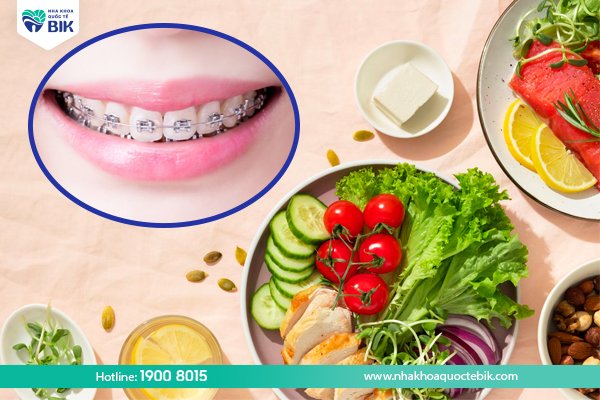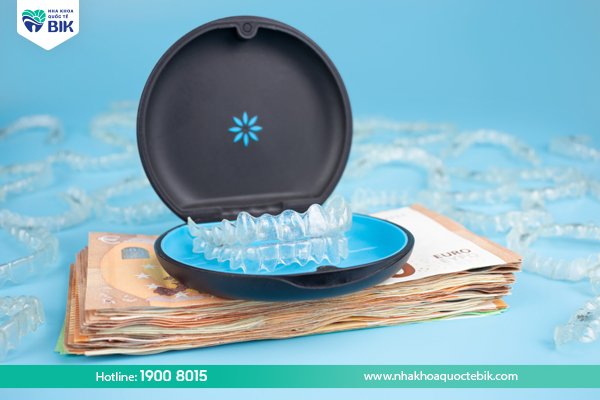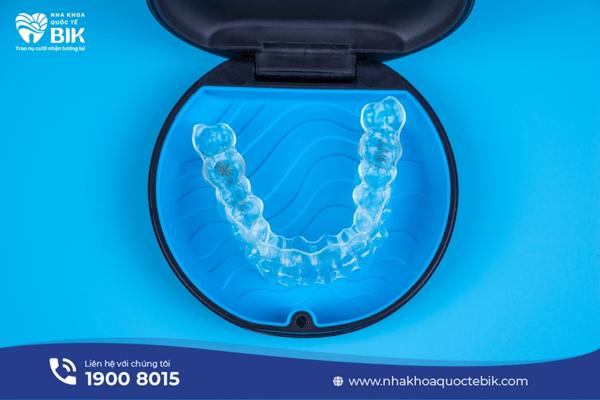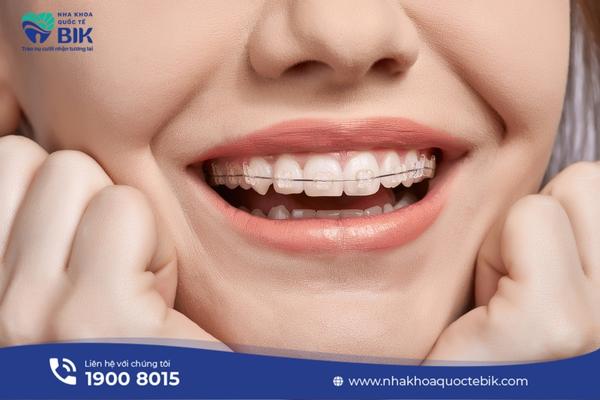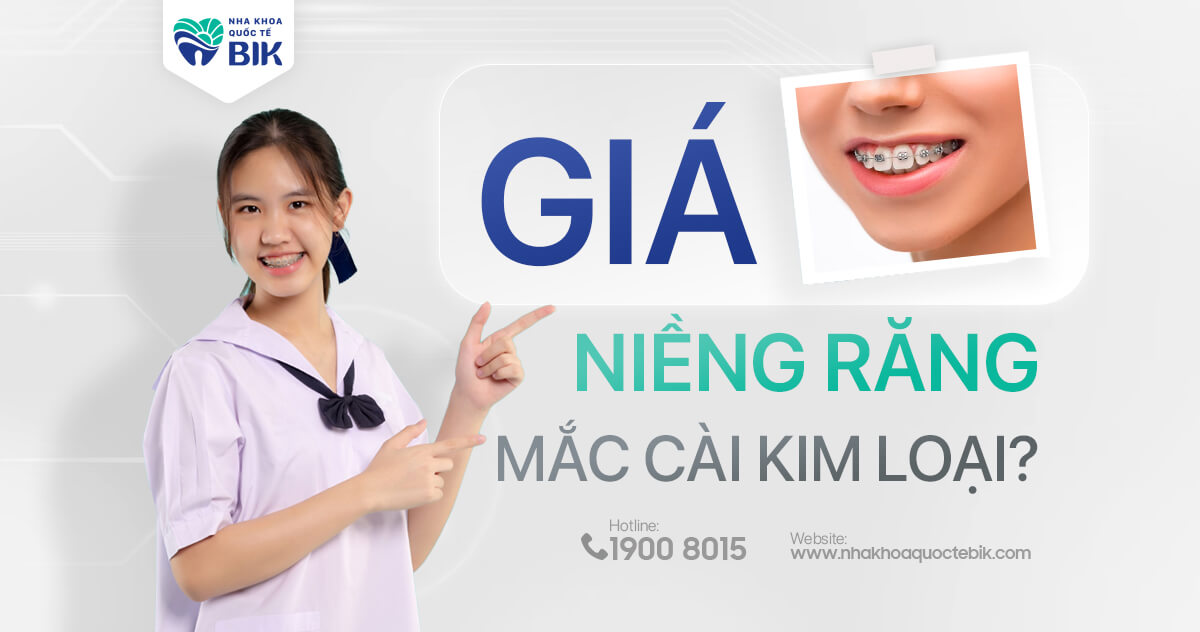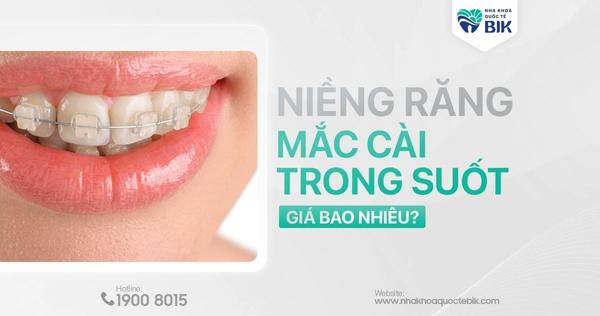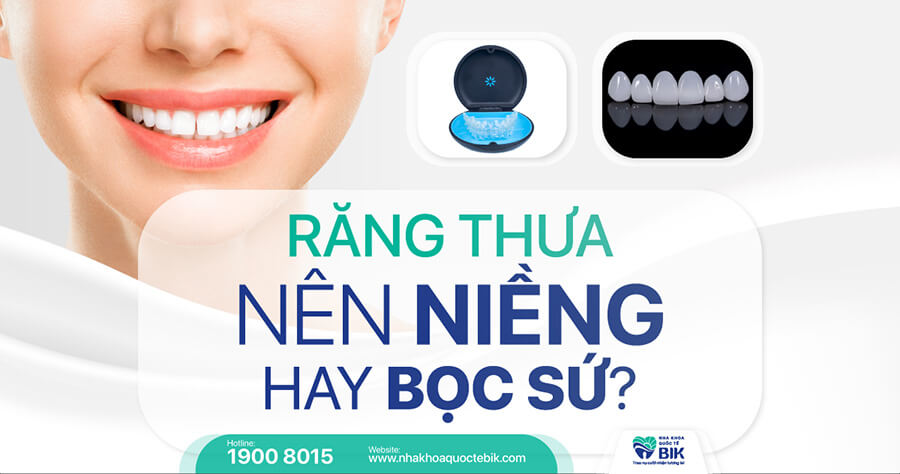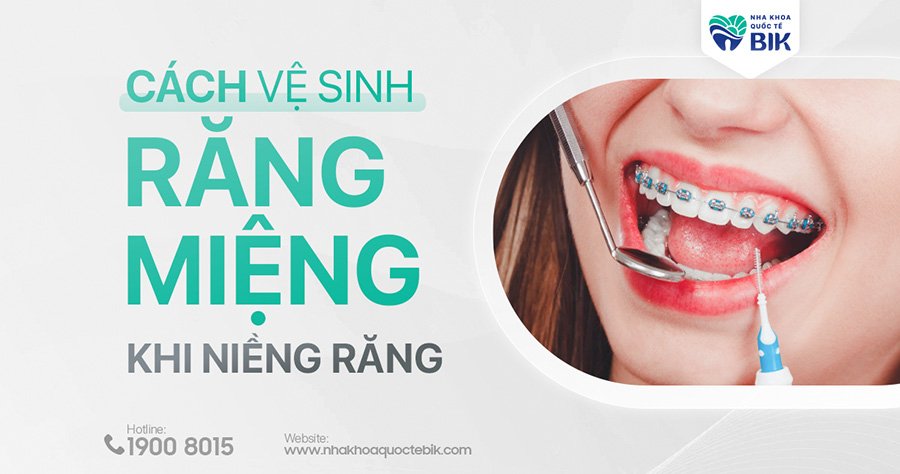
When braces are applied, the teeth must be subjected to a sufficient tightening force to move to the correct position on the jaw, so they are no longer strong and more sensitive than usual. Therefore, what to eat and what not to eat after braces is a matter of concern for many people. A reasonable diet not only helps ensure the effectiveness of orthodontics but also improves resistance as well as overall health.
1. Why should you pay attention to your diet after braces?
After braces, the parts of the mouth such as the cheeks, lips, gums, and tongue have not yet adapted to the braces, so they will cause discomfort and entanglement when eating, chewing, and communicating. In addition, due to the force of the braces wire system, pain will also appear. Depending on the body and the sensitivity of the teeth, some people will feel a little pain or no pain after braces.
Teeth have to endure quite a strong tightening force to move to the correct position, so they will be much weaker than normal, so in addition to oral hygiene, eating and drinking also need to be paid attention to avoid damaging and causing pain to the teeth and jaws. In addition, a reasonable diet can also help shorten the time of braces significantly.
2. How long after braces can you eat normally?
In fact, there are only 2 times when chewing becomes more difficult during the braces process. That is the first 1-2 weeks after starting braces and 1-3 days after periodically changing the archwire at the dentist. Patients can completely eat normally outside of the 2 stages mentioned above.
After removing the braces, finishing the braces process and the teeth are moved to the correct position on the jaw, eating and drinking will definitely become more comfortable. At this time, the misaligned bite has been completely corrected, so you can easily bite and crush the food you love.
3. What should you eat when you first get braces?
When you first get braces, you should choose some of the following foods:
3.1. Soft cooked foods
Foods such as porridge, soup, cereals or soft rice, noodles, pho that are well cooked will make chewing much easier. Because there is no need to use a lot of force to chew food, the teeth will not be sore or sensitive.
3.2. Milk and dairy products
In the early stages, milk and dairy products will help patients supplement the necessary energy for the body. At the same time, it reduces pressure on the teeth, creating favorable conditions for orthodontic treatment to achieve the desired effect.
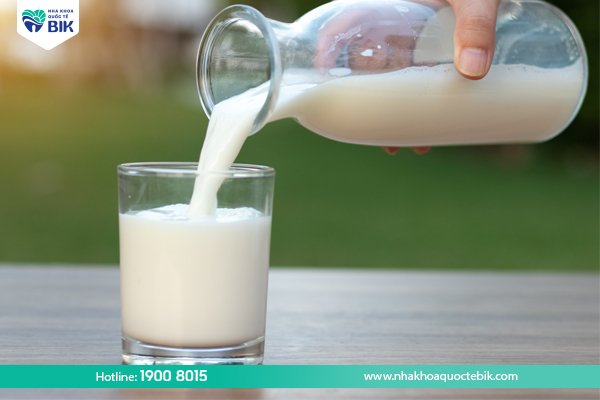
3.3. Egg dishes
Egg dishes such as fried eggs, boiled eggs, flan,… contain a lot of vitamin D and are also very easy to eat, so you can enjoy them freely, contributing to enriching the menu when wearing braces.
3.4. Nutrient supplements
When suffering from pain, people often feel depressed and skip meals. If this condition persists, you are likely to fall into a state of malnutrition and physical weakness. Therefore, you also need to ensure that your body is fully supplemented with nutrients from meat. Beef, fish, etc. must be cooked until soft, can be minced or stewed to make it easier to digest.
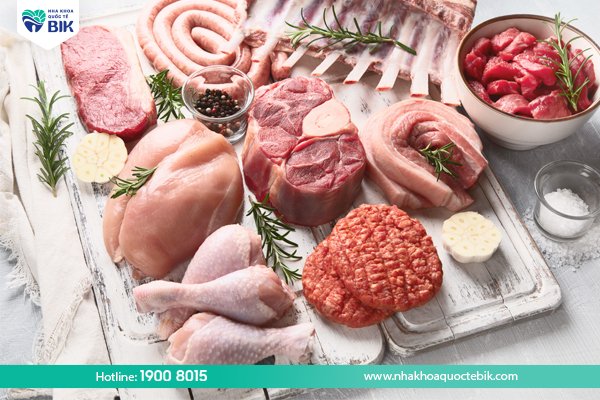
3.5. Foods that provide vitamins
It is necessary to fully supplement the necessary minerals and vitamins to help the body increase resistance and prevent oral diseases. You should add some fruits such as apples, bananas, oranges, grapefruit, … as well as dark green vegetables, rich in fiber and antioxidants such as cauliflower, kale, spinach, … in your daily menu.
4. What foods should you avoid after braces?
To ensure the success of the orthodontic process, you need to avoid the following foods:
4.1. Hard, chewy foods
When eating hard foods such as ice cream, ice, bones, candy, etc., the teeth and jaws have to move a lot, so pain is inevitable. At the same time, these foods can affect the surface of the teeth and orthodontic appliances. In case the food is too chewy, it can get stuck in the grooves of the brackets and wires, making it difficult to clean, and over time, the brackets will come off the surface of the teeth.
4.2. Food that is too hot or too cold
In fact, the temperature of the food directly affects the teeth. Food that is too hot or too cold can make teeth that are not as strong as usual become more sensitive and painful. At the same time, the system of wires and brackets will also expand or contract.
4.3. Crispy, crumbly foods
When you have braces, you should also avoid foods like bread, popcorn, cookies, chips, etc. These foods often leave a lot of crumbs and can get stuck in the braces. If not cleaned properly, it can lead to some oral diseases.
5. Other notes during the braces process
In addition to some notes on eating and drinking, you should also note the following during the braces process:
– Eat slowly and chew thoroughly to ensure your health and avoid digestive diseases.
– Do not use your teeth to bite other objects such as bottle caps, soft drink can caps, etc. to avoid damaging the braces as well as affecting your teeth.
– Maintain oral hygiene habits at least 3 times a day, especially after each meal with a soft-bristled toothbrush.
– Use toothpaste and mouthwash containing fluoride to help protect and strengthen teeth during the orthodontic process.
– Strictly follow the instructions and return for regular check-ups as scheduled by your doctor to check and correct any abnormalities if any.
6. Invisalign clear braces for comfortable eating and drinking
If when doing traditional braces, you have to worry a lot about eating and drinking will damage the braces, difficult to clean your teeth and have to abstain from eating many things, then the solution is Invisalign clear braces. Unlike traditional braces with a system of archwires and brackets fixed on the teeth, the orthodontic appliance of the clear braces method is a flexible removable orthodontic tray that brings convenience to daily activities.
Invisalign clear braces are made from transparent plastic so that they fit tightly to the teeth, making them almost invisible when worn, providing maximum aesthetics and confidence for all your communication activities. With the ability to be flexibly removed, the braces only need to be worn for 20-22 hours a day to ensure effective treatment. That means you can completely remove the braces during eating and oral hygiene. Therefore, there is no need to abstain from eating the foods you love. In addition, oral hygiene also becomes much easier because you only need to clean the surface of the teeth as before braces.
With the information provided above, BIK International Dental Clinic hopes that you have a better understanding of diet, what to eat and what to avoid while wearing braces. A suitable diet can help shorten the time of braces, avoid damaging the braces as well as ensure overall health.

